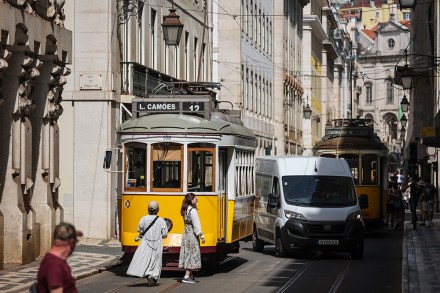The fragility of the modern city reflects humanity’s vulnerability
As I reached the final pages of the German writer Gregor Hens’s essayistic travelogue The City and the World, news of the blackout across Spain and Portugal snatched my attention. Madrid and Lisbon were at a standstill. Images of gridlocked round-abouts and commuters rushing out of pitch-dark subway tunnels plunged me into a fatalistic mood. When will it happen here? Hens, I realised, had nailed an important point: the ‘stunning complexity’ of modern cities makes them fragile. The metropolis, he writes, has become so intricate, its limits so stretched, that in it, ‘we are always living on the verge of catastrophe’. A seasoned globetrotter who spent his formative years ‘guzzling


